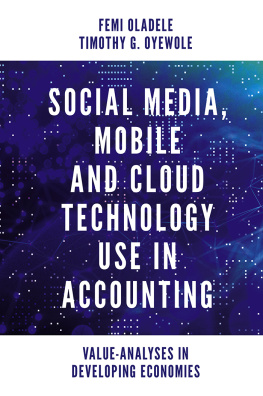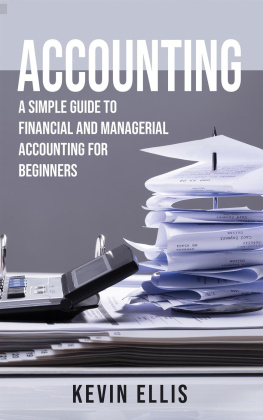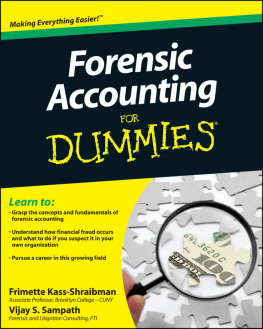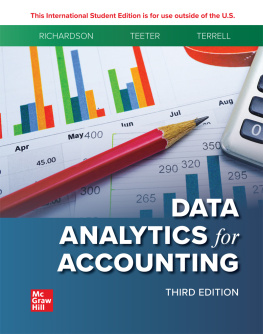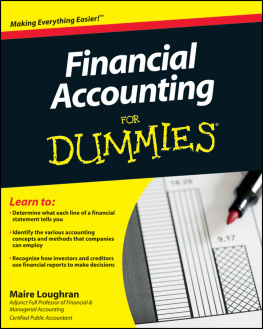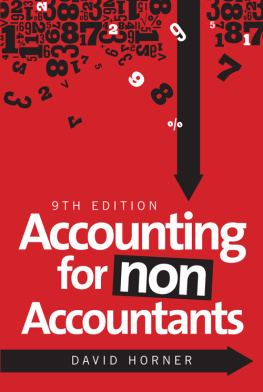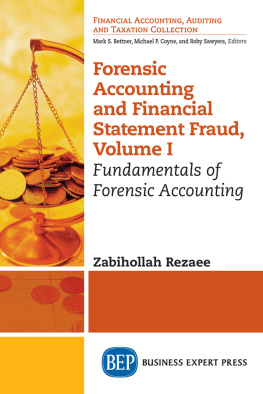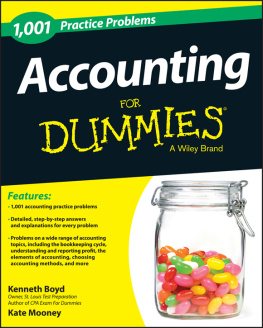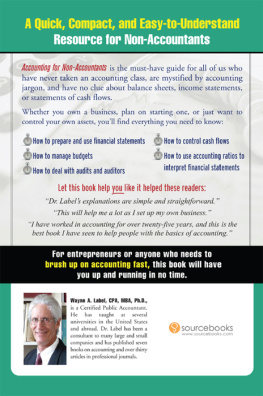Chapter 1
Introduction
Background
A significant basis for the accounting profession is responsibility and reporting; basically between an agent and a principal. This relationship typifies the transfer of resources from owners to other economic entities (individuals, other entities and government) as managers, which in turn bestows a responsibility for accountability. The need for financial accountability inspired by a relationship of stewardship and strengthened by agency became compelling as a result of the emergence of economic activities (Eisenhardt, 1989). However, around early twentieth century, according to Wood (1972), it was discovered that laymen could no longer handle the sophistication of ensuring accountability with the growing economic activities, hence the need for the appointment of professionals. These professionals were trained under the apprenticeship method before more formal methods in schools (Chu & Man, 2012). Professional accountants have since devoted their time to activities, operations and functions to provide information to users for decision-making. However, with the enormous responsibility occasioned by the advent of emerging technologies, the need for professional accountants to use technologies became evident.
In response to the need to ensure technology competency and proficiency amongst professional accountants inter alia, the Pathways Commission, which birthed in 2012 through a collaboration of the American Accounting Association (AAA) and the American Institute of Certified Public Accountants (AICPA) in the United States (Samkin & Stainbank, 2016), responded by instituting a Technology Task Force (TTF) amongst others. The aim was to explore the different accounting technologies used in practice today and what will be expected in the future and the technologies currently being taught in accounting programs as well as how current and emerging educational technologies can improve accounting education (Pathways Commission, 2014b, p. 13).
Following the achievements of the Pathways Commission, Ellington (2017) decried the non-formalisation and institutionalisation of reforms to higher accounting education in the United Kingdom and recommended the duplication and/or adoption of the work of the Pathways Commission. Earlier in South Africa, a study (Wessels, 2004) was carried on to investigate the future work of professional accountants with respect to the triggers of information technology (IT) and to spur research into aligning the future with current education of accountants and the research continued (Wessels, 2005) with intent to identify technology skills that are required for professional accountants to fit into the future of work.
In Egypt, a study (Nokhal & Ismail, 2014) was carried out to determine the (mis)alignment of IT knowledge/skills importance and integration into the accounting curriculum and the results found a significant gap between what is expected in business and what is taught in the accounting programme. In Nigeria, Okolie and Izedonmi (2014) questioned if Nigerian professional accountants are being trained to meet international minimum acceptable competence level, albeit without specific reference to technology. These studies are indicative of the changing dynamics in the business world and the need for professional accountants to understand and prepare for the effect of the wave of change.
The minimum level of technology proficiency expected of professional accountants is specified in the International Education Standards (IES), the global accounting education benchmark, issued by the International Accounting Education Standards Board (IAESB) (2017). The IES is published by the International Federation of Accountants (IFAC), which is the global association of professional accountants. The IES, as a global standard for the education of aspiring professional accountants and professional accountants, stipulates authoritative pronouncements to be used by members and associates of IFAC, that is, PAOs in all jurisdictions of the world in the education (training) of their members. The level of proficiency should be the ability to demonstrate necessary general IT and IT control knowledge as well as competencies, knowledge and understanding of at least one of the three roles of managing, designing and evaluating information systems (IAESB, 2007). This proficiency requirement exceeds general computer appreciation and front-end use of technology.
The need to ensure and sustain an acceptable level of competence, adoption and use of technological applications for accounting operations, functions and activities amongst professional accountants is valid, yet it is becoming increasingly evident that there is shortage of IT competencies amongst professional accountants (Lubbe, 2016). This therefore raises concern on the ability to grasp the value of the accountants' training framework on technology use amongst professional accountants for their varied responsibilities. The crux of the matter lies with the future relevance of professional accountants (Okolie & Izedonmi, 2014), given also that bookkeeping activity is no longer the exclusive preserve of accounting professionals; this, now being taken over by traditional accounting software packages (Oladele, 2014) and cloud-enhanced applications (Meall, 2016a). This poses a challenge to the ability of professional accountants faring in this fast-evolving technological world with an apparent shortage of an acceptable level of technology skills, given significant agreement in literature that technology will continue to shape accounting practice in the decade to come (Meall, 2016b) and make some accounting functions obsolete (Birt, Wells, Kavanagh, Robb, & Bir, 2018; IFRS Foundation, 2010b).
Technology leverages its ability to substantially increase process operational efficiency beyond the outcomes of human dexterity such as is seen with expert systems (Damasiotis, Trivellas, Santouridis, Nikolopoulos, & Tsifora, 2015; IAESB, 2007; Shaoul, 1988; Sutton, Holt, & Arnold, 2016), grid computing (Sultan, 2011), artificial intelligence, cognitive computing, machine learning (Hong et al., 2016; Sutton et al., 2016) and big data analytics (He, Wang, & Akula, 2017; Sledgianowski, Gomaa, & Tan, 2017). However, accountants may increasingly bask in the assurance that technology may not be able to quickly replace professional scepticism (ACCA, 2016; Berg, Buffie, & Zanna, 2016; Meall, 2016b), a distinguishing attribute amongst professionals, despite developments in revolutionary technologies.
In addition, technology may be used to enhance (not replace) the need for accountants' professional judgement as required by the provisions of the principles-based reporting standards now globally adopted/adapted. Notwithstanding, it is true that the human race is being threatened by its own creation, albeit this is not news as God was threatened by His creation (Genesis 11). While this is true, professional accountants are not willing to be thrown to the trash can of irrelevance because of technological advancements (Meall, 2016b). This brings two suggestions; one from an idiom, that the danger of creating a monster is that one day, it will turn to harm its creator. This raises two concerns: (1) the ability of identifying and avoiding the creation of a monster and (2) determining how monstrous technology is or will be (Worrell, Bush, & Di Gangi, 2014). Secondly, God did not allow the plans of mankind to disrupt His divine plans, so he took action (Meyers, 2012, n. Genesis 11: 68). In the same vein, professional accountants may not sit idly and observe (Guthrie & Parker, 2016) else the circumference moves (Oladele, 2015c) leaving them behind (ACCA & IMA, 2015).
As technology continues to evolve, professional accountants will as well need to continue to evolve means of staying relevant by not only using technology for their operations and activities, but significantly influencing and being part of the development of technological applications, tools and systems as managers, designers and evaluators (IAESB, 2007). Consequently, this has significant implications for the training of professional accountants, which raises fundamental matters on how much accountants' technology competence and use tell about the quality of training they receive. In addition, the issue of how the environment (in which professional accountants learn and eventually work) influences accountants' technology adoption practices borders on predictive and interpretive value measurements. It is important to stress that the term technology is omnibus, and this study has limited its scope to social media, mobile and cloud technologies, abbreviated as SoMoClo technologies. SoMoClo technologies are relevant to the work of professional accountants in diverse ways and forms. Social media has always been available for personal communication and networking, yet it has been reinvented to fit into corporate livelihood in organisations. Mobile and cloud technologies have a combined capacity to surpass present organisational challenges, hence their importance to the work of professional accountants.

